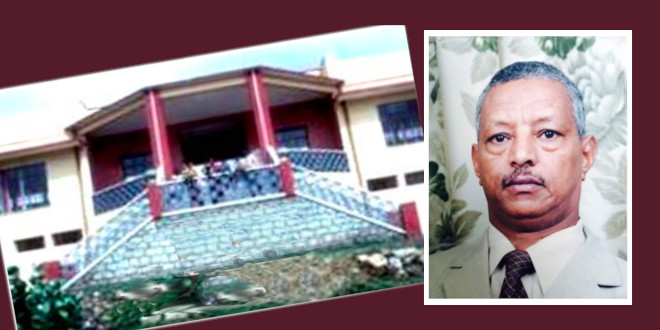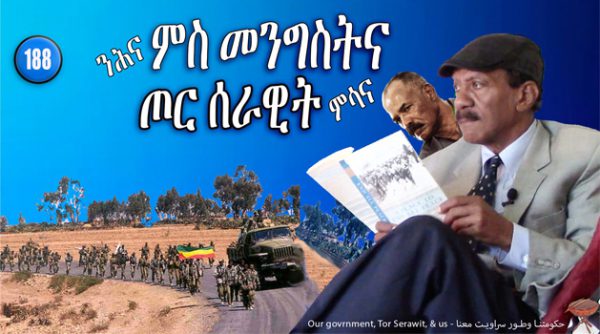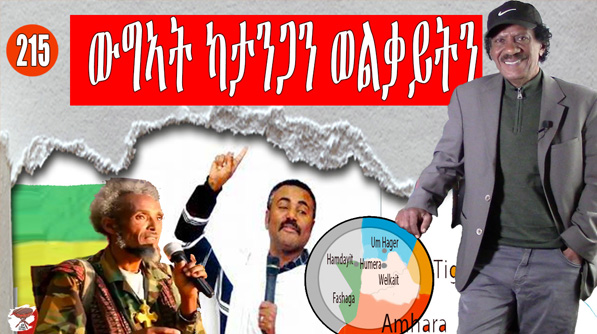Manal Younus: An Example In The Peach State
Emperors, wannabe-emperors, and petty-dictators name significant edifices, avenues, school and the like after their names or the causes they advance. The day Saddam Hussein occupied Kuwait in 1991, his troops didn’t waste time in dismantling the street signage and replacing it with new ones that carried his name. Thus, in no time there appeared Saddam-everything: Saddam Airport, Saddam Street, Saddam this and Saddam that… If Atlanta was a Middle Eastern, or African city, its significant edifices would have carried the name of Jimmy Carter. But the poor ex-president got a bad deal, they named only a modest street after him, and no doubt the city authorities decided that on their own, not because of a government fiat or an order the ex-president passed.
In any event, Georgia is not a Peanut state as many people would think, it’s the Peach state, and so is Atlanta—I didn’t notice that the last time I visited the city, but this time, I found out every other street is named Peach-something: Peachtree street, Peach street, maybe, Sweet Peach street, Ripe Peach Avenue, etc.
Moreover, I didn’t realize that the city streets are difficult to get used to, even if assisted by the best GPS device. A friend complained, “dammit, they have their stores either on top of a hill or in a ravine; you can’t see them while driving on most streets.” He is right; once you climb up the mounds and descend the slope on the other side, you feel like you are walking on a terrain that used to be the civil war trench lines, which now houses so many stores hidden behind the mound and behind a forest. Atlanta also has an unbelievably large number of trees that seems to grow uncontrollably like the Australian rabbits. But take note, I don’t mean to irritate environmentalists who might get me wrong; I love trees because they are a sign of life and pleasant to the eyes, but they need to put those trees in Atlanta on contraceptives!
I was in Atlanta, Georgia, to attend the 14th Annual convention of the Eritrean Muslim Council. The last time I attended was in 2008, the sixth annual convention that was held in Alexandria, Virginia. That time I drove straight from Toronto, Canada, after attending the first Keren High School Reunion of which I was a founding member—and I was worried because the organizers of the Keren reunion had no qualms in expressing their distaste of what they considered “Boletika”, meaning, anything that the Eritrean regime would not approve of. Unfortunately, back then, I thought I sensed a somewhat similar attitude at the EMC convention, and that is why I warned against the trend in my report entitled, “Eritrean Apathy: No BoletiKa Zone.” To me, that week was double disappointment since I felt it was wrong to avoid involvement in Eritrean affairs. At a time when Eritreans need to garner all the resources they can get to fight against injustice, the “we will not engage in politics” position is a disappointing one. But lately I sense it is changing.
Understandably, I always had a problem with the characterization of the fight for justice in Eritrea as politics; shunning the struggle against injustice with the presumption that it’s politics doesn’t make one apolitical! Moreover, that characterization, that position in itself, is the core of politics. Sadly, over the years, such discussion (argument, rather) has spoiled my relations with a few of the leaders of the two organizations and sometimes I feel guilty for not letting it go. But how could I?
For fairness sake, I would like to mention that there was always an assurance from some of the leaders of EMC that those of us who espouse similar views should convince the general membership to adopt our position, and that if we succeed, the leaders will not have a problem. That gesture had earlier opened a door to form an advocacy group within EMC (it didn’t move anywhere), and many attempts to engage the EMC to change its position failed because of the wrong approach or the wrong response. And that led me on a quest for an answer, to find out the main reasons for such a position by some of the leaders.
The excuses of the two organizations are similar to each other: they claim that some of the members do not want to engage in politics, and if they were to be involved, they would risk fracturing the organizations. My position on that is very clear: why would the organizations be held hostage by a few individuals who think fighting for justice is engaging in trivial politics, not an obligation? If some individuals are going to coerce the associations into silence and apathy, shouldn’t they help them withdraw their membership from the organization? Isn’t it better they left? I talked about this at length with Almaz Abdella Falol, the energetic and brilliant chairwoman of EMC, and I am hoping that together with her young colleagues she would find a way to challenge and change the statuesque.
Obviously I do not have any sympathy for such a lame position and I would naturally respond, and write about it, though at times I felt I was harsh. However, lately I discovered that not all the leaders are to blame—a few selfish individuals have taken the organizations hostage; the other leaders genuinely fear the disintegration of their respective organizations that they toiled for years to build. That is appreciated. But to what end do we freeze our sense of obligation, and at what moral cost? To what principle?
Indeed, there are a few bullies within both organizations who hold the rest of the membership hostages to their fears, whims, and narrow interests; they are discouraging discourse on Eritrean affairs. However, the tides of the Eritrean problems seems to be changing course; it’s no more acceptable to be a spectator from the sidelines while Eritrean lives are being destroyed by the PFDJ. The current reality should save the administrators some embarrassment to change course, and they do not have to cater to individuals who are worried about their selfish interests only. Organizations that are formed for Eritreans by Eritreans should not be held hostage, and distanced from Eritrean issues by a few, against the moral judgement of the rest of the membership, regarding the role of the organizations vis a vis Eritrean affairs.
I am thankful for the EMC leadership for giving me an opportunity to speak at a workshop where I deliberately asked the overwhelmingly young (and female) audience if they were indifferent, or they do not care to advance the goal of justice in Eritrea. And I was proud for their assurance; their willingness to get involved was overwhelming, they all confirmed they felt it is an obligation that they feel they should carry. God bless their heart, particularly the girls who are made of steel.
Now that such a snug is out of the way, I hope MCA would have a more inspiring and emboldening role in the struggle for the eradication of injustice in Eritrea. I have always seen the potential in EMC and still do. The absence of such an organized force, particularly in the Diaspora, has curtailed participation of Eritrean Muslims in their country’s affairs and denied Eritrea the opportunity to be helped by its children. Thankfully, over the last year or two, Muslim participation in the Diaspora activities has improved due to many reasons, but still, there is a long way to go to reach the full potential of participation. That is why I appeal to the EMC to play a more active role in Eritrean affairs.
It’s my wish the leaders of the two associations will not be bitter because of this report. I am confident they know that a public activity is open to public scrutiny. Anything that carries a common name (in this case, Eritrea and Muslim, and in the case of the Reunion “Keren”) are legitimate targets. Managers should not be defensive when they are criticized—and I apologize for those who are painted as such because the bad potatoes spoiled the soup. My wishes for both organizations are high and I wish to see their conventions becoming more than a family reunion and not limited to an opportunity for nostalgic friends and acquaintances to have a great time only for a couple of days! In the case of the Keren Reunion, I hope those who want to run the association as if it is an affiliate of the PFDJ, as one of its hzbawi mahberat, should be challenged and stopped.
Finally, it would be unfair of me if I didn’t give the EMC credit where it is due. There are good examples of helping Eritrean refugees, training them, some schools, etc. But that is way below the potential of such a large organization. For instance, my sister Leila, works under EMC in collaboration with the American Relief Association for the Horn of Africa (Araha) and she has raised considerable funds and executed several projects in the refugee camps. If a single person can do that much, I expect EMC to do dozens more.
Unfortunately, after fourteen years of existence, the organization is not up to the expectations. It spends most of its limited resources starting to plan for the next conference the minute one is wrapped up. In short, conferences are supposed to be means, not ends in themselves. And the touchy ‘feely’ attitude, and the defensive posture of some individuals, God bless their heart, should be shed off. EMC has a potential to grow to the size of, for instance, the Carnegie foundation—why not? Conversely, EMC should be humble where its resources are obviously humble, and build on its strength: its membership base. Of course, EMC’s character should be different than the character of the wealthy foundations, whose pampered CEO’s come with unpalatable attitude.
And here is what’s important. The convention had five, make it six, points that need to be highlighted.
- Hummed Neberai Scholarship fund: The children of the late Sheikh Hummed Neberai established a foundation carrying the name of their father: Hummed Neberai Foundation. The project was introduced by the elder of the family, Ustaz Khiar Hummed Neberai. True to the legacy of the late Hummed Neberai, whose support of education (particularly of women) is well known, the foundation will support Eritrean students in Sudan. Ustaz Khiar promised that the details of the scholarship will be announced soon.
- Matrimonial: this is one of the “humbly successful” projects that EMC manages. Given the fact that EMC keeps details of this project very confidential, it is not easy to come with details, but suffice to say that “it’s humble, but successful,” according to one of the handlers of the project.
- Meeting the Youth: It’s mindboggling to discover that the first generation has produced such a big number of second-generation Eritrean Diaspora. Seeing them under one roof (mashaaAllah, Hasid zelil leg’baa), in such numbers is really a reminder of how many people have been exiled from their country. Now we have professionals, successful youngsters among the second generation Eritreans. Simply, prideful.
- Amel Osman: I was on the stage giving a speech alongside Amel Osman at an event moderated by Huda Adem, my niece who goes by the name (Gual-Adem). Amel delivered an inspiring (and encouraging fro me) speech and I hope it is made public by EMC.
- Meeting the young poetess Manal Younus: this is a well-established poetess from Australia, and she “no longer competes in slams but has gone on to perform around the country including at The Sydney Opera House…” I met Manal at the convention and she agreed to record the video clip that you see on this page for awate.com.
- I can’t possibly name all the shinning young people and the older generation. Thank you all—I don’t have to thank anyone who thinks fighting for justice is Boletika.
Finally, I feel relieved that my belated report is now fully delivered… Next year, I hope to report with more upbeat stuff similar to the six points above, and more involvement by EMC in Eritrean affairs.
Related reading:




Awate Forum